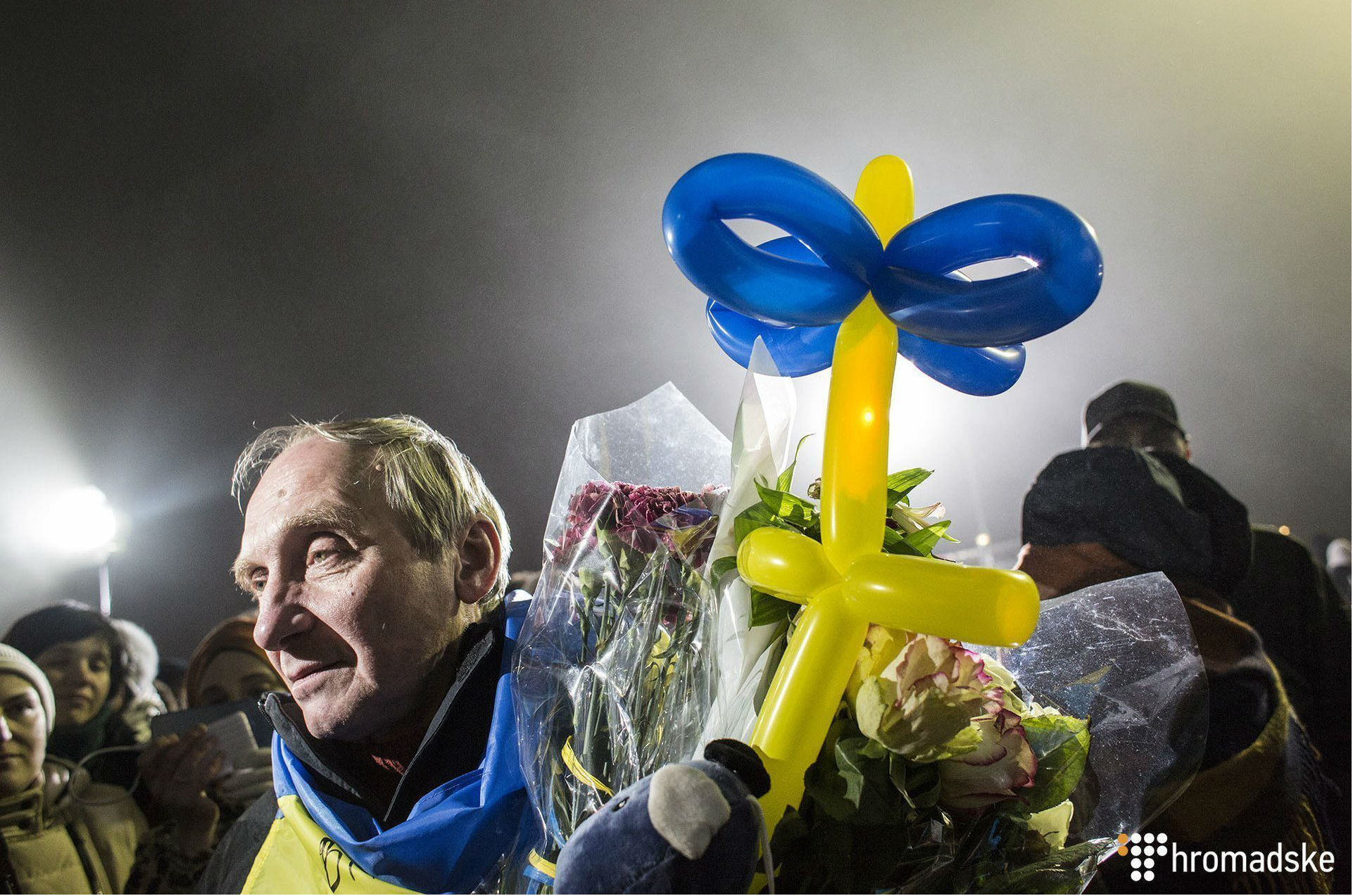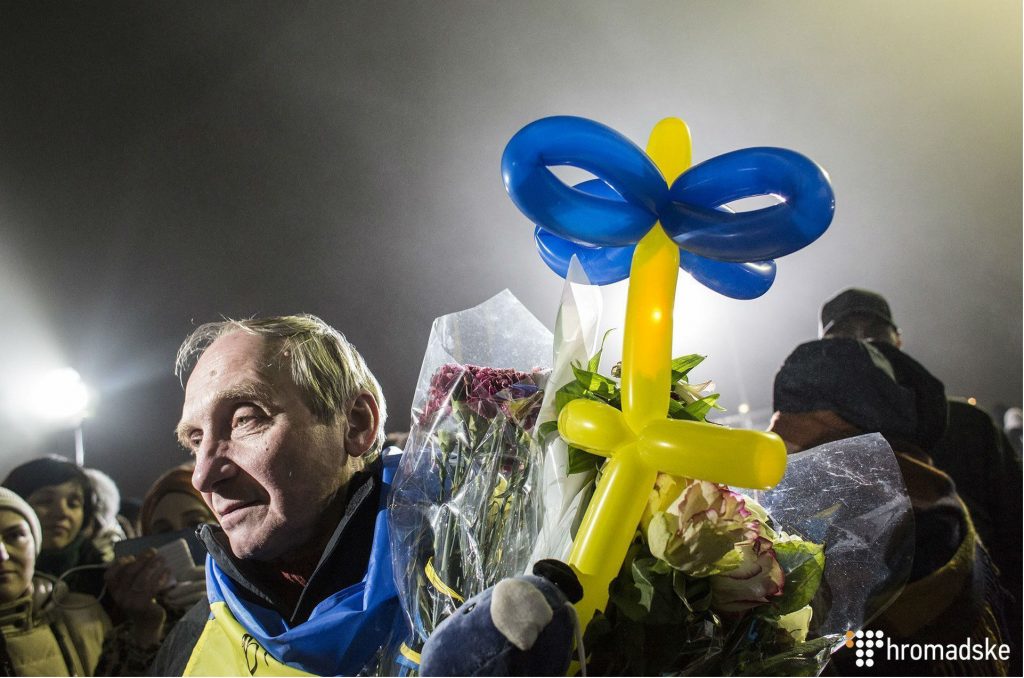 When Russian-led separatists seized control of Donetsk in 2014, Ihor Kozlovsky did what many residents of the city were doing: he stayed put.
When Russian-led separatists seized control of Donetsk in 2014, Ihor Kozlovsky did what many residents of the city were doing: he stayed put.
But unlike others, Kozlovsky was not a supporter of the self-proclaimed “Donetsk People’s Republic” (DNR). In fact, he was a Ukrainian patriot, a professor and world-renowned expert of comparative religion at Donetsk National Technical University, and a former civil servant. Instead, he had a different reason to remain in Donetsk; his oldest son suffered from Down Syndrome and paralysis and could not be easily transported elsewhere.
Eventually, however, the separatists came for Kozlovsky, detaining the 63-year-old scholar outside his house on January 27, 2016. A DNR military tribunal found Kozlovsky—a committed pacifist—guilty of illegally possessing weapons and espionage and sentenced him to two years and eight months imprisonment. He was then thrown into a labyrinth of illegal prisons in the DNR, tortured, and subjected to inhumane conditions.
Kozlovsky’s ordeal only ended on December 27, 2017, when he was freed as part of a large-scale prisoner exchange between Ukraine and the separatists. His experiences in separatist prison are not unique. But unlike some former prisoners—who often fear for their families back on occupied territory—the scholar has recounted his experiences to Ukraine’s Hromadske television channel. His story offers a rare look at life inside Ukraine’s occupied east and its penal system.
Kovlozsky’s captivity began in one of the many dank, often overcrowded basements that the so-called DNR “state security ministry” has turned into prisons. He described this as “the most difficult, horrible conditions” he endured.
Like most political prisoners, Kozlovsky was repeatedly beaten and tortured, a widespread practice in the DNR. Torture plays an integral role in the unrecognized state’s legal system. “[The torturers] have a task and this task is very simple: to force charges upon people [and] extract a confession,” Kozlovsky said. At times, they even shouted that they were the direct successors to the Soviet secret police, the NKVD and the KGB, to intimidate the prisoners.
Often, the torturers would use an inmate’s family to break him. “There was always a threat that they would put pressure on my family,” Kozlovsky recalled. “They use our soft spots and, for many, it’s their families.”
But Kozlovsky’s experiences in DNR prisons are not entirely a tale of inhumanity and lawlessness. They also emphasize that plight of ordinary people caught up in one of the world’s major conflicts today.
During his time in prison, Kozlovsky says he was able to find peace through yoga and breathing exercises. He also become a source of psychological and spiritual support for some of his fellow prisoners. And despite the cruelty of DNR torturers, Kozlovsky discovered that many of the guards were ordinary people doing the only jobs they could find. They had no animosity toward the prisoners and, often, they were quite worried about what the future holds for the Donbas region.
“These are people who want to survive. Many of them reminisce about the times when—as they say it—‘we still had Ukraine,’ because they are worried about their financial status,” he says. “And, of course, they are worried about the amnesty process [under the Minsk Accords].”
Fear appears to be one of the dominant emotions in Donetsk. While in prison, Kozlovsky also spoke with prisoners who had recently been jailed for criminal—i.e. non-political—offenses. Not long before, they had been on the outside, living amid the harsh realities of life in the DNR.
“They have a sense of futility,” Kozlovsky recalled. “Everyone says that the region is not viable.” Factories and mines—formerly the core of the industrial Donbas region—have stopped functioning. Many former employees have sought work in Russia or Ukraine.
Perhaps for this reason, the DNR repressive machine frightens the public about what will happen when “Ukraine arrives” back in the region. The people working in law enforcement—and particularly those within the “state security ministry,” who are curated by Russia’s Federal Security Service (FSB)—understand that there is no way back should the DNR fall.
Nonetheless, Kozlovsky remains optimistic that the Donbas can be peacefully reintegrated into Ukraine—particularly if the country can rebuild connections with ordinary people who have remained in separatist-controlled territory.
He believes that civil society will play a critical role in helping to “establish a connection with the people on the other side of the demarcation line,” he said. “We just need to meet [these people], to talk to them, to calmly explain our position.”
After nearly two years in prison, Kozlovsky continues to exude positivity and calmness. And his faith in the people of Donetsk and Ukraine is strong.
“I always tell my students that in order to not get disappointed [in people], we need to not make idols,” he said. “I will not get disappointed [in anyone] simply because I love people the way they are. I love my country the way it is.”
Matthew Kupfer is Managing Editor at Hromadske International and Senior Editor at The Odessa Review.
Image: Ihor Kozlovsky, a professor and world-renowned expert of comparative religion at Donetsk National Technical University, was taken prisoner and jailed by the separatists in eastern Ukraine. His ordeal only ended on December 27, 2017, when he was freed as part of a large-scale prisoner exchange between Ukraine and the separatists. Credit: Anastasiia Vlasova/HROMADSKE
